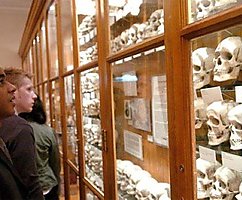Facts about people
 Bashny.Net
Bashny.Net
How well do you know yourself?
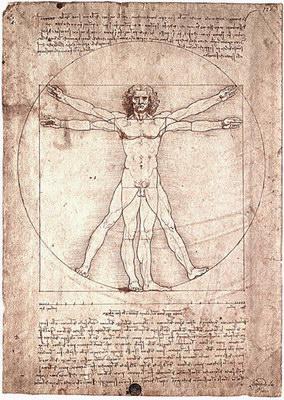
Let's see.
Brain
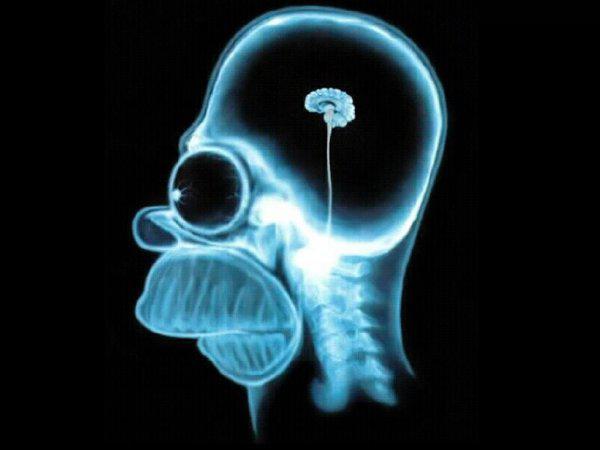
Power cord, translated into heat, similar to the power desyativattnoy bulbs
Approximate capacity of our memory is from 3 to 1,000 terabytes. The capacity of the entire British National Archives - 70 terabytes
The brain consumes one-fifth of all the oxygen, with a weight of only 2% of the weight of our body
Surprisingly, in a dream, our brain is working less. and often more than during daytime active lifestyle
Scientists say that the more a person IQ, the more he sees dreams
According to recent studies, the nerve cells in the body grow during the rest of our lives. Previously it was thought that the number of nerve cells decreases with age and is not restored
The propagation velocity information in the neurons of the body varies and depends on the type of neurons. The speed range - from 0.5 to 120 meters per second
The brain itself is not sensitive to pain. When you hit your head pain is felt through the tissue surrounding the skull.
Four-fifths of our brain is water
Hair and nails

Of all the hair facial hair grow fastest. If a man does not shave for life, he grows a beard longer than 30 meters
Every day, we lose 60-100 strands of hair. The exact number depends on the age, power, sex and time of year
Women's hair is twice thinner men
One human hair can withstand up to 100 grams of weight.
The fastest growing nail on the middle finger. It is noticed that the longer finger, the faster it nail. On the little finger of the lowest rate of
On the surface of the body increases as much hair as chimpanzees, but they have a thin and short, because it is less noticeable
At blonde almost a half times more hairs (150,000) than the babe (100,000), and two times greater than that of red (80000)
Fingernails grow several times faster than the legs.
The lifetime of the hair on your head is between 3 and 7 years.
To the surrounding noticed that you began to go bald, you need to lose half of hair.
Human Hair virtually destroyed. It can only burn and water, cold and many aggressive substances he is insensitive.
Internal organs
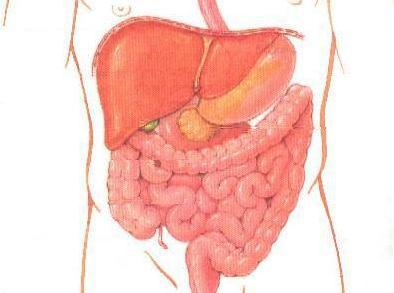
The largest organ in our body - the small intestine. If you straighten it all the intricacies, it will be four times more of our growth
Blood pressure is generated by our heart, can raise it to a height of 10 meters
The concentration of hydrochloric acid in the stomach such that the razor blade can corrode, not only eaten your pizza
As a consequence of the preceding paragraph, the cells lining the stomach and directly in contact with the gastric juice, updated every 3-4 days
The total length of the blood vessels in the body reaches 100,000 km
The total area of our lungs (all tiny bubbles - the alveoli) is comparable to the area of a tennis court
Heart rate in women on average lower than men, due to the lower body weight, and consequently, a smaller volume of blood, in need of "pumping"
The liver - one of the most difficult and loaded organs in our body. The number of functions it reaches several hundreds, including, for example, bile production, utilization of erythrocyte, the synthesis of the set of proteins and detoxification
The size of the heart reaches two stacked fists and the diameter of the largest vessel - the aorta is comparable to the diameter of a garden hose watering
The left lung is slightly smaller than the right due to the fact that we must make room for the heart
The human body is made with a large margin of excess reliability - people survive if it remove the stomach, spleen, three-quarters of the liver, 80% of the intestine, one kidney, one lung, as well as almost all the organs of the pelvic and groin area. Of course, a pleasant kind of life can not be named, but the removal of these organs is not deadly
The functions of the body

The air exhaled during sneezing, moving at a speed exceeding 160 kilometers per hour.
The same air during coughing spreads at a rate of slightly less - 100 kilometers per hour
Some people sneeze from bright light (I - too)
Women blink twice as often as men
Filling volume of the bladder is an average of 400 milliliters, although some people are able to "endure" to a volume of one liter
Approximately 75% of all human feces comprises water
On foot legs we are half a million sweat glands in the grid can allocate up to half a liter of sweat
Over a lifetime, we have released in the mouth so much saliva that it is possible to fill two swimming pools
An adult day break wind around 14 times, even if sure does not do so. Otherwise, they accumulate in the stomach and cause pain
Earwax - is not just an unfortunate misunderstanding. It lubricates and cleans the ear canal, as well as protects the delicate internal auditory organs from bacteria, fungi and insects
Reproduction

There are up to more than 120,000,000 sexual acts, that is, every day, about 4% of the world's population have sex. Not surprisingly, the Earth's population rapidly increased
The largest human cell - female egg, with a diameter of about a millimeter and can be seen with the naked eye. The smallest cells - the sperm, which is only slightly larger than the size of the cell nucleus
Your teeth have started to grow even six months before the birth. More precisely, begin to form special dental tubercles, which later become the teeth
Most babies are born with blue eyes because of the presence of these substances melanin. Under the action of ultraviolet light it decomposes and begins to "exude" real eye color
In relative terms, a child is a very powerful thing. If proportional to enlarge it to the size of, say, a bull in a fight with a child of the bull will not be any chance
One child for every 2000 birth already have at least one tooth. This can be as milk and "predmolochny" tooth, which falls when the normal climb baby teeth
Fingerprints are beginning to appear in a child six months before the birth, and their pattern remain constant throughout his life
Each of us is a half-hour of his life was a single-celled organism (when the sperm and egg united to the first division)
Men have erections during sleep occurs on average every hour. This is caused by the inflow of blood and testosterone, and is normal for REM sleep (REM sleep)
Feelings

After a hearty heavy meal our ears for some time it becomes less acute
Only one third of the world's population have a vision wholly
Without saliva, we can not taste the food. Try to dry your tongue cloth or cotton wool, and then try to try the food
Women have a more subtle sense of smell than men. Thus every fiftieth person on Earth does not distinguish between odors
Our nose can distinguish 50,000 different smells
Even a small unexpected noise leads to dilated pupils and a change of focus. That's why representatives of the exact professions (surgeons, watchmakers) do not like to be noisy.
Each person has a unique smell, caused by a combination of genetic factors, environment, diet and hygiene items used.
Age

Weight of cremated human remains on average 4 kilograms
Upon reaching 60 years of age a person loses about half the taste buds
Our eyes throughout life virtually unchanged in size, in contrast to the ears and nose, which grow all life
For 60 years every second person snores
The baby's head is one-quarter of the total growth. At age 25, her height is already equal to one-eighth of the length of the body
Diseases
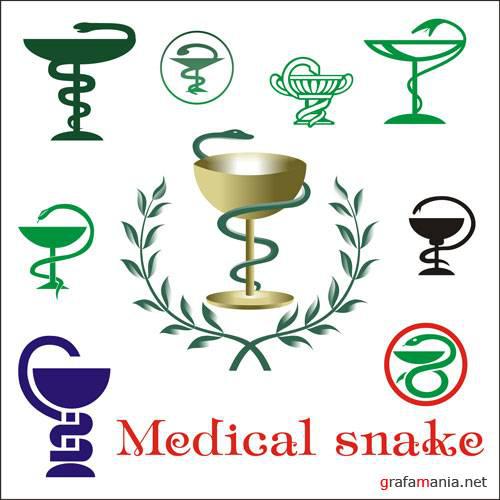
The most dangerous day in terms of heart attacks - on Monday. According to a study conducted in Scotland, it was found that the risk of dying from a heart attack on Monday at the 20% higher than any other day of the week
Man needs more sleep than food. If no food in the presence of water can hold even a month or two (depending on the physique and other factors), the longest recorded period without sleep - 11 days
Mild sunburn causes damage to blood vessels under the skin, from which they "recover" for several months. Wear sunscreen!
More than 90% of all diseases are caused or significantly exacerbated by stress
Muscles and skeleton
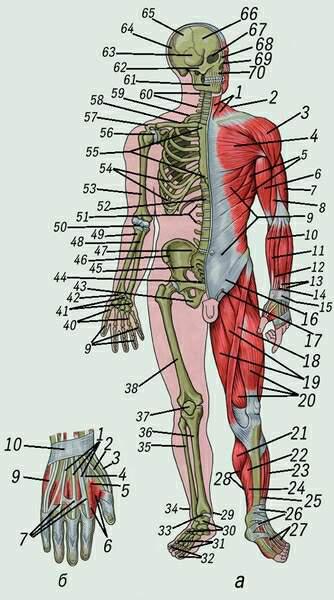
When a smile has 17 muscles, while a frown - 43. Much more profitable and easier to keep a smile on our face
A newborn skeleton consists of 300 bones, with the age of some of them grow together, is only 206
Our growth in the morning to one centimeter more than the evening, which is associated with the compression of the spine cartilage throughout the day
The strongest muscle in our body, given the size - language
The strongest bone in the human body - jaw
To make a step, our body 200 engages muscles. And there are steps we make every day about 10 thousand ...
The only organ in the body that can not be restored - the teeth. The outer part of the tooth is the enamel, that is non-living tissue and can not regenerate itself, giving the work the dentist
Bone stronger some steel grades. Of course, the bone is more fragile, but if you take the same weight of steel, the bone is stronger
Of the 206 bones in our body is in pieces 52 feet
Through a microscope
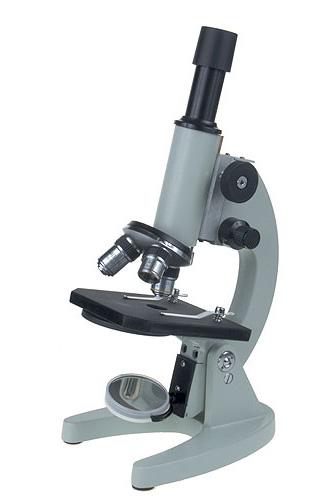
32 million bacteria inhabit every inch of our body
Skin person updated on average every 27 days
Every moment in our body cells die 3,000,000,000
Every hour we have shed 600,000 particles of skin
Every day in the adult human body is made 300,000,000,000 new cells
The imprint of the language, like a fingerprint, is unique for each person
In our body enough iron to make a nail desyatisantimetrovyh
Our lips have intense red color due to the large number of capillaries that are close to the skin surface. Typically in these blood rich in oxygen, because of it has a red color. When we are cold, blood vessels and reduced oxygen saturation decreases, which leads to the blueness of the skin of the lips (and not only)
Miscellaneous
The colder in the bedroom, the more likely a nightmare
Tears and mucus in the nasopharynx contain in their composition lysozyme - an antibacterial enzyme that destroys the cell walls of bacteria
For half an hour the body releases enough heat to boil two liters of water
When a person is in a state of fear or stress in the ears produce more sulfur
You can not tickle yourself because the brain "knows" where are your hands, where to expect tickling and does not account for these feelings
Arm span is approximately equal to the growth of human
Man - the only creature that can cry from the excess of emotion. In general, we - the biggest crybabies in nature
Right-handed people live, on average nine years longer than left-handed. This is not a genetic predisposition, but the result of the unsuitability of most dangerous mechanisms of our society to the needs of left-handers
In addition to humans and other primates, only koalas have unique fingerprints.

Let's see.
Brain

Power cord, translated into heat, similar to the power desyativattnoy bulbs
Approximate capacity of our memory is from 3 to 1,000 terabytes. The capacity of the entire British National Archives - 70 terabytes
The brain consumes one-fifth of all the oxygen, with a weight of only 2% of the weight of our body
Surprisingly, in a dream, our brain is working less. and often more than during daytime active lifestyle
Scientists say that the more a person IQ, the more he sees dreams
According to recent studies, the nerve cells in the body grow during the rest of our lives. Previously it was thought that the number of nerve cells decreases with age and is not restored
The propagation velocity information in the neurons of the body varies and depends on the type of neurons. The speed range - from 0.5 to 120 meters per second
The brain itself is not sensitive to pain. When you hit your head pain is felt through the tissue surrounding the skull.
Four-fifths of our brain is water
Hair and nails

Of all the hair facial hair grow fastest. If a man does not shave for life, he grows a beard longer than 30 meters
Every day, we lose 60-100 strands of hair. The exact number depends on the age, power, sex and time of year
Women's hair is twice thinner men
One human hair can withstand up to 100 grams of weight.
The fastest growing nail on the middle finger. It is noticed that the longer finger, the faster it nail. On the little finger of the lowest rate of
On the surface of the body increases as much hair as chimpanzees, but they have a thin and short, because it is less noticeable
At blonde almost a half times more hairs (150,000) than the babe (100,000), and two times greater than that of red (80000)
Fingernails grow several times faster than the legs.
The lifetime of the hair on your head is between 3 and 7 years.
To the surrounding noticed that you began to go bald, you need to lose half of hair.
Human Hair virtually destroyed. It can only burn and water, cold and many aggressive substances he is insensitive.
Internal organs

The largest organ in our body - the small intestine. If you straighten it all the intricacies, it will be four times more of our growth
Blood pressure is generated by our heart, can raise it to a height of 10 meters
The concentration of hydrochloric acid in the stomach such that the razor blade can corrode, not only eaten your pizza
As a consequence of the preceding paragraph, the cells lining the stomach and directly in contact with the gastric juice, updated every 3-4 days
The total length of the blood vessels in the body reaches 100,000 km
The total area of our lungs (all tiny bubbles - the alveoli) is comparable to the area of a tennis court
Heart rate in women on average lower than men, due to the lower body weight, and consequently, a smaller volume of blood, in need of "pumping"
The liver - one of the most difficult and loaded organs in our body. The number of functions it reaches several hundreds, including, for example, bile production, utilization of erythrocyte, the synthesis of the set of proteins and detoxification
The size of the heart reaches two stacked fists and the diameter of the largest vessel - the aorta is comparable to the diameter of a garden hose watering
The left lung is slightly smaller than the right due to the fact that we must make room for the heart
The human body is made with a large margin of excess reliability - people survive if it remove the stomach, spleen, three-quarters of the liver, 80% of the intestine, one kidney, one lung, as well as almost all the organs of the pelvic and groin area. Of course, a pleasant kind of life can not be named, but the removal of these organs is not deadly
The functions of the body

The air exhaled during sneezing, moving at a speed exceeding 160 kilometers per hour.
The same air during coughing spreads at a rate of slightly less - 100 kilometers per hour
Some people sneeze from bright light (I - too)
Women blink twice as often as men
Filling volume of the bladder is an average of 400 milliliters, although some people are able to "endure" to a volume of one liter
Approximately 75% of all human feces comprises water
On foot legs we are half a million sweat glands in the grid can allocate up to half a liter of sweat
Over a lifetime, we have released in the mouth so much saliva that it is possible to fill two swimming pools
An adult day break wind around 14 times, even if sure does not do so. Otherwise, they accumulate in the stomach and cause pain
Earwax - is not just an unfortunate misunderstanding. It lubricates and cleans the ear canal, as well as protects the delicate internal auditory organs from bacteria, fungi and insects
Reproduction

There are up to more than 120,000,000 sexual acts, that is, every day, about 4% of the world's population have sex. Not surprisingly, the Earth's population rapidly increased
The largest human cell - female egg, with a diameter of about a millimeter and can be seen with the naked eye. The smallest cells - the sperm, which is only slightly larger than the size of the cell nucleus
Your teeth have started to grow even six months before the birth. More precisely, begin to form special dental tubercles, which later become the teeth
Most babies are born with blue eyes because of the presence of these substances melanin. Under the action of ultraviolet light it decomposes and begins to "exude" real eye color
In relative terms, a child is a very powerful thing. If proportional to enlarge it to the size of, say, a bull in a fight with a child of the bull will not be any chance
One child for every 2000 birth already have at least one tooth. This can be as milk and "predmolochny" tooth, which falls when the normal climb baby teeth
Fingerprints are beginning to appear in a child six months before the birth, and their pattern remain constant throughout his life
Each of us is a half-hour of his life was a single-celled organism (when the sperm and egg united to the first division)
Men have erections during sleep occurs on average every hour. This is caused by the inflow of blood and testosterone, and is normal for REM sleep (REM sleep)
Feelings

After a hearty heavy meal our ears for some time it becomes less acute
Only one third of the world's population have a vision wholly
Without saliva, we can not taste the food. Try to dry your tongue cloth or cotton wool, and then try to try the food
Women have a more subtle sense of smell than men. Thus every fiftieth person on Earth does not distinguish between odors
Our nose can distinguish 50,000 different smells
Even a small unexpected noise leads to dilated pupils and a change of focus. That's why representatives of the exact professions (surgeons, watchmakers) do not like to be noisy.
Each person has a unique smell, caused by a combination of genetic factors, environment, diet and hygiene items used.
Age

Weight of cremated human remains on average 4 kilograms
Upon reaching 60 years of age a person loses about half the taste buds
Our eyes throughout life virtually unchanged in size, in contrast to the ears and nose, which grow all life
For 60 years every second person snores
The baby's head is one-quarter of the total growth. At age 25, her height is already equal to one-eighth of the length of the body
Diseases

The most dangerous day in terms of heart attacks - on Monday. According to a study conducted in Scotland, it was found that the risk of dying from a heart attack on Monday at the 20% higher than any other day of the week
Man needs more sleep than food. If no food in the presence of water can hold even a month or two (depending on the physique and other factors), the longest recorded period without sleep - 11 days
Mild sunburn causes damage to blood vessels under the skin, from which they "recover" for several months. Wear sunscreen!
More than 90% of all diseases are caused or significantly exacerbated by stress
Muscles and skeleton

When a smile has 17 muscles, while a frown - 43. Much more profitable and easier to keep a smile on our face
A newborn skeleton consists of 300 bones, with the age of some of them grow together, is only 206
Our growth in the morning to one centimeter more than the evening, which is associated with the compression of the spine cartilage throughout the day
The strongest muscle in our body, given the size - language
The strongest bone in the human body - jaw
To make a step, our body 200 engages muscles. And there are steps we make every day about 10 thousand ...
The only organ in the body that can not be restored - the teeth. The outer part of the tooth is the enamel, that is non-living tissue and can not regenerate itself, giving the work the dentist
Bone stronger some steel grades. Of course, the bone is more fragile, but if you take the same weight of steel, the bone is stronger
Of the 206 bones in our body is in pieces 52 feet
Through a microscope

32 million bacteria inhabit every inch of our body
Skin person updated on average every 27 days
Every moment in our body cells die 3,000,000,000
Every hour we have shed 600,000 particles of skin
Every day in the adult human body is made 300,000,000,000 new cells
The imprint of the language, like a fingerprint, is unique for each person
In our body enough iron to make a nail desyatisantimetrovyh
Our lips have intense red color due to the large number of capillaries that are close to the skin surface. Typically in these blood rich in oxygen, because of it has a red color. When we are cold, blood vessels and reduced oxygen saturation decreases, which leads to the blueness of the skin of the lips (and not only)
Miscellaneous
The colder in the bedroom, the more likely a nightmare
Tears and mucus in the nasopharynx contain in their composition lysozyme - an antibacterial enzyme that destroys the cell walls of bacteria
For half an hour the body releases enough heat to boil two liters of water
When a person is in a state of fear or stress in the ears produce more sulfur
You can not tickle yourself because the brain "knows" where are your hands, where to expect tickling and does not account for these feelings
Arm span is approximately equal to the growth of human
Man - the only creature that can cry from the excess of emotion. In general, we - the biggest crybabies in nature
Right-handed people live, on average nine years longer than left-handed. This is not a genetic predisposition, but the result of the unsuitability of most dangerous mechanisms of our society to the needs of left-handers
In addition to humans and other primates, only koalas have unique fingerprints.
Tags
See also
How to develop cerebral hemisphere?
The prophecies of the great science fiction writer Isaac Asimov come true one by one. How is this possible?
Alex garland: people ruin everything; the machines a pretty good track record compared to us
Steve Pavlina: Only the past that determines Your future
For them, nothing is impossible. Real stories about women heroes
Facts about lefties
The mysteries of our brain: 15 interesting facts
Interesting facts about Africa
10 facts about the human brain
Facts about the movie Some Like It Hot














